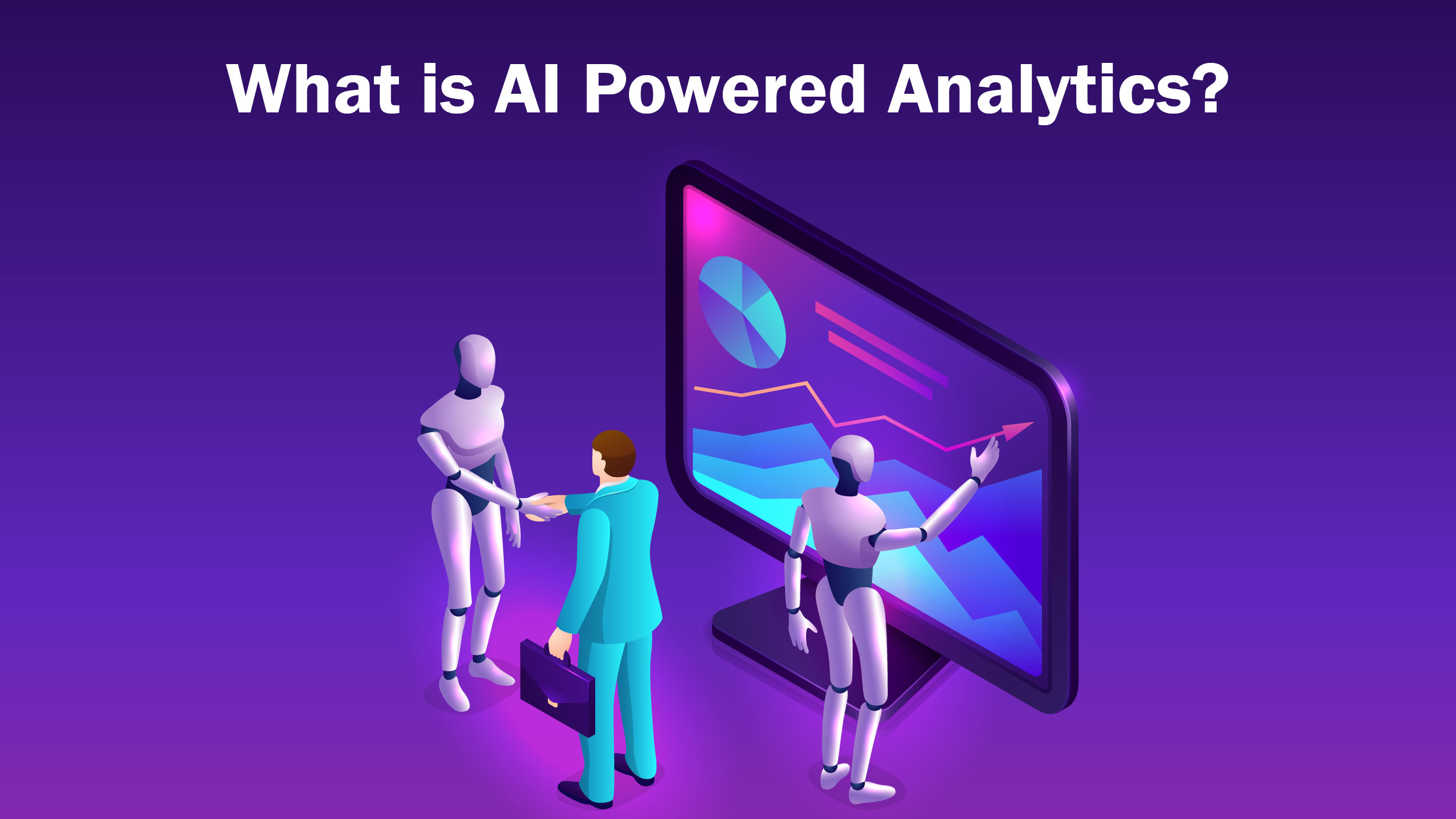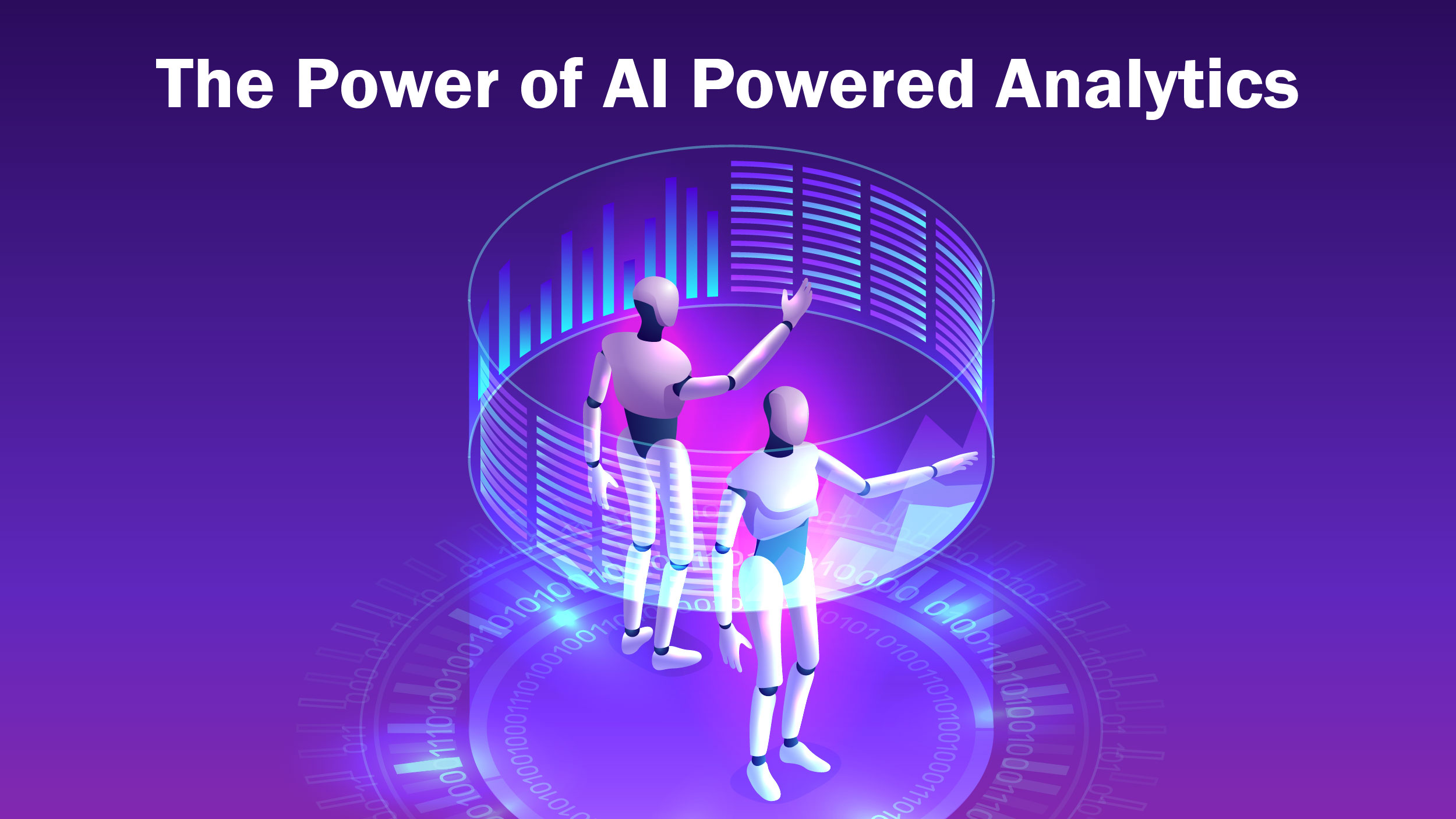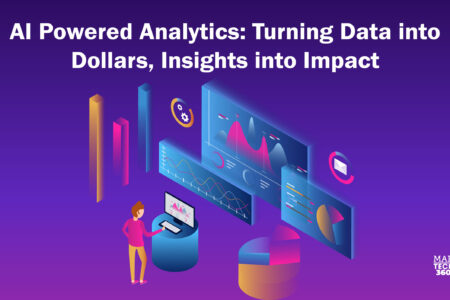In this data-driven era, we generate vast amounts of data daily, thanks to online activities, transactions, and social media. However, having copious amounts of data isn’t sufficient. The real value lies in leveraging analytics to extract insights and enhance decision-making.
According to the 2023 Marketing Trends Report, data-driven marketers will take the lead this year. Analytics, the key to decoding your data and unraveling past events, their causes, and future trends, empowers you to streamline operations, spot fresh prospects, and make more intelligent business choices.
As data analytics continues to evolve, AI (artificial intelligence) is playing an increasingly crucial role. AI powered analytics boosts human intelligence to gain deeper insights from data.
Let’s delve deeper into this technology, exploring every facet in this comprehensive guide.
What is AI Powered Analytics?

AI-powered data analytics solutions have the potential to bring numerous advantages by lowering the expenses associated with data scientists and analytics experts, enhancing the efficiency of risk management models, facilitating the development of cutting-edge products, and enabling instant analysis of substantial datasets. AI-powered analytics, including cutting-edge AI-powered speech analytics, is revolutionizing data interpretation, enabling informed decisions, and driving business success in 2023.
The Power of AI Powered Analytics

● Sales Projections: Navigating Future Market Trends
During the holiday season, a retail business can effectively plan and prepare by utilizing AI powered analytics. These sophisticated tools enable the business to analyze past sales data, evaluate customer behavior, and factor in external variables like economic indicators and weather conditions. By adopting this data-centric approach, the business can generate precise sales projections, optimize inventory management, and successfully meet customer expectations amidst the high-demand period.
Scenario: Strategic Inventory Planning with AI-Enhanced Sales Forecasting
A small electronics seller utilizes AI-powered analytics to predict sales for their upcoming product release. They use data from past releases, customer demographic information, and competitor sales to forecast demand and manage inventory more effectively. This approach helps them decrease carrying expenses and avoid running out of stock, guaranteeing a seamless product launch and a satisfactory customer experience.
Also Read: Is Your Website Strong Enough? Exploring the Power of CMS Software
● Customer Segmentation: Customizing Marketing Approach
AI-driven analytics have the ability to categorize customers according to their distinct preferences, behavior, and purchase history, recognizing the uniqueness of each customer. This enables businesses to customize their marketing strategies, providing targeted content, promotions, and recommendations to specific customer segments.
Scenario: Tailored Marketing with AI-Driven Customer Segmentation
A travel agency uses AI powered analytics to categorize its customer base based on budget, travel preferences, and previous bookings. Armed with these insights, the agency tailors marketing campaigns to offer personalized travel packages and promotions. The result is an increase in customer engagement, higher conversion rates, and improved customer loyalty.
● Fraud Detection: Securing Financial Transactions
Fraud detection is essential in the financial sector to safeguard clients and avoid financial losses. Large amounts of transaction data may be instantly analyzed by AI-driven analytics to spot unusual behavior and possible fraud.
Scenario: Real-Time Fraud Detection with AI Data Analytics
AI powered analytics are used by financial institutions to supervise customer transactions and identify instances of fraud. By examining transaction trends, location information, and customer spending behaviors, the system can swiftly recognize suspicious transactions as they occur. Consequently, the bank can promptly notify customers about potential fraudulent activities, ensuring the protection of their financial resources and fostering trust.
● Supply Chain Optimization: Improving Efficiency
AI powered analytics can improve logistics and inventory control for companies with complex supply chains. Businesses may locate bottlenecks, cut down on transportation expenses, and guarantee prompt delivery of goods by analyzing supply chain data.
In fact, AI-powered forecasting can cut supply chain network failures by 30 to 50%, according to McKinsey Digital.
Scenario: Enhancing Supply Chain Operations with AI Analytics
To improve its supply chain, a manufacturing company uses AI-powered analytics. The business pinpoints inefficiencies and streamlines its supply chain by studying data on manufacturing cycles, raw material availability, and transportation timetables. As a result, there is improved operational effectiveness, cost savings, and increased customer satisfaction due to on-time deliveries.
● Customer Sentiment Analysis: Mastering Feedback
For organizations to measure consumer satisfaction and pinpoint areas for improvement, understanding customer sentiment is essential. AI-driven data analytics may analyze consumer feedback from a variety of sources, including social media, surveys, and reviews, to provide insightful data on how customers feel about a product or service.
Scenario: Elevating Customer Experiences with AI-Enabled Sentiment Analysis
An e-commerce company uses sentiment analysis supported by AI to comprehend client feedback and reviews. The business determines common pain points and areas for improvement by analyzing client sentiment. With this information at its disposal, the business may improve client interactions, resulting in higher customer satisfaction and loyalty.
Bottom line
There is no denying the revolutionary promise of AI powered analytics. Businesses can unlock the full potential of their data, unearth important insights, and drive informed decision-making with AI-powered data analytics solutions. Organizations now have strong tools at their disposal to completely transform their business processes, whether through sophisticated speech analytics, advanced data processing, or other AI-driven methods.
By adopting these technologies, the door is opened to a day when data is not simply a resource but also a strategic advantage. The era of AI-powered data analytics has arrived, and those who take advantage of it will be well-positioned to achieve new heights of success in the world of data.

